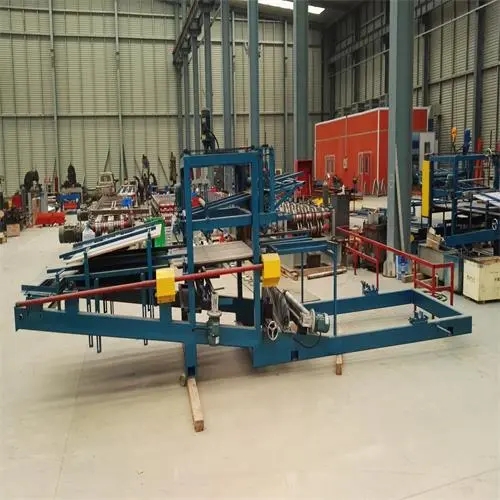
Understanding IBR Roofing Sheet Making Machines
In the construction and manufacturing industries, roofing sheets play a crucial role in ensuring structural integrity and weather resistance. Among the various types of roofing sheets, IBR (Inverted Box Rib) sheets are increasingly gaining popularity due to their strength, durability, and aesthetic appeal. To meet the rising demand for IBR roofing sheets, specialized machines have been developed—IBR roofing sheet making machines. This article delves into the essential features, benefits, and operational principles of these machines.
Features of IBR Roofing Sheet Making Machines
IBR roofing sheet making machines are designed to produce high-quality roofing sheets with specific rib patterns that enhance strength and aesthetics. Typically, these machines come equipped with several key features
1. Robust Construction IBR roofing sheet machines are built using high-quality steel and other durable materials to withstand the rigorous manufacturing process. This robustness ensures longevity and consistent quality over time.
2. Advanced Technology Modern machines utilize advanced technology, including programmable logic controllers (PLC) and touch panels for easy operation. These features enable precision control over the manufacturing process, allowing for adjustable sheet lengths and widths to cater to various customer requirements.
3. Roll Forming Station The core of the IBR sheet making machine is its roll forming station. This system comprises a series of rollers arranged in a specific configuration that gradually shapes the flat metal sheets into the desired ribbed profile.
4. Cutting Mechanism After the sheets are formed, an automatic cutting mechanism precisely cuts them to the required lengths. This not only enhances efficiency but also reduces material waste.
5. Hydraulic System A hydraulic system is often incorporated to facilitate smooth and controlled operations, particularly during the cutting and pressing phases of manufacturing.
Benefits of IBR Roofing Sheet Making Machines

The adoption of IBR roofing sheet making machines offers several notable benefits
1. High Efficiency These machines can produce large quantities of roofing sheets in a relatively short time, meeting the demands of high-volume construction projects.
2. Cost-Effectiveness Producing IBR sheets in-house reduces costs associated with purchasing pre-manufactured sheets, making it an economically viable option for construction companies and manufacturers.
3. Customization IBR machines allow for customization in terms of sheet thickness, width, and color, enabling manufacturers to cater to specific client requirements and current market trends.
4. Quality Control With precise control over the manufacturing process, manufacturers can ensure consistent quality across all produced sheets. This reliability builds trust with clients and enhances brand reputation.
5. Environmental Benefits Utilizing advanced technology, these machines can optimize material usage and minimize waste, contributing to more sustainable manufacturing practices.
Operational Principles
The operation of an IBR roofing sheet making machine follows a systematic process. It typically begins with the feeding of raw materials, such as galvanized steel coils, into the machine. The coils are then uncoiled, leveled, and guided through the roll forming station, where they are shaped into the IBR profile. Once formed, the sheets undergo a cutting process to achieve the desired length. Following that, they are often subjected to quality checks before being packaged for delivery or further processing.
Conclusion
In summary, IBR roofing sheet making machines represent a pivotal innovation in the construction industry. Their robust design, advanced features, and economic advantages make them essential for manufacturers aiming to produce high-quality roofing solutions. As the demand for durable and aesthetically pleasing roofing materials continues to grow, investing in these machines offers a pathway to success in the highly competitive construction market. With efficient operations and the ability to customize product offerings, manufacturers can not only meet but exceed their client expectations.